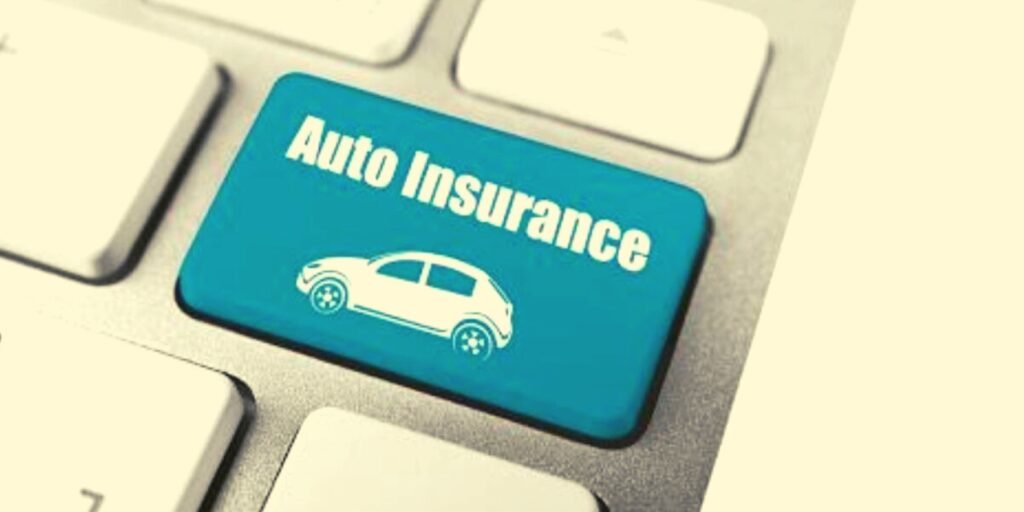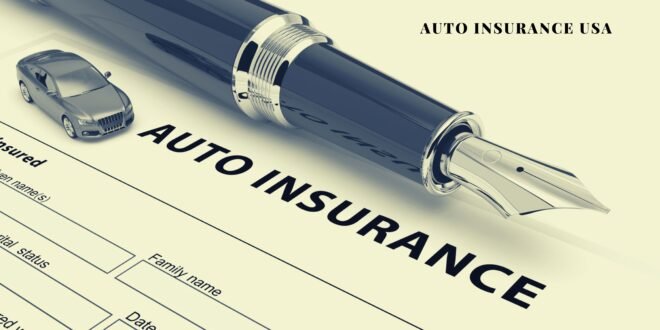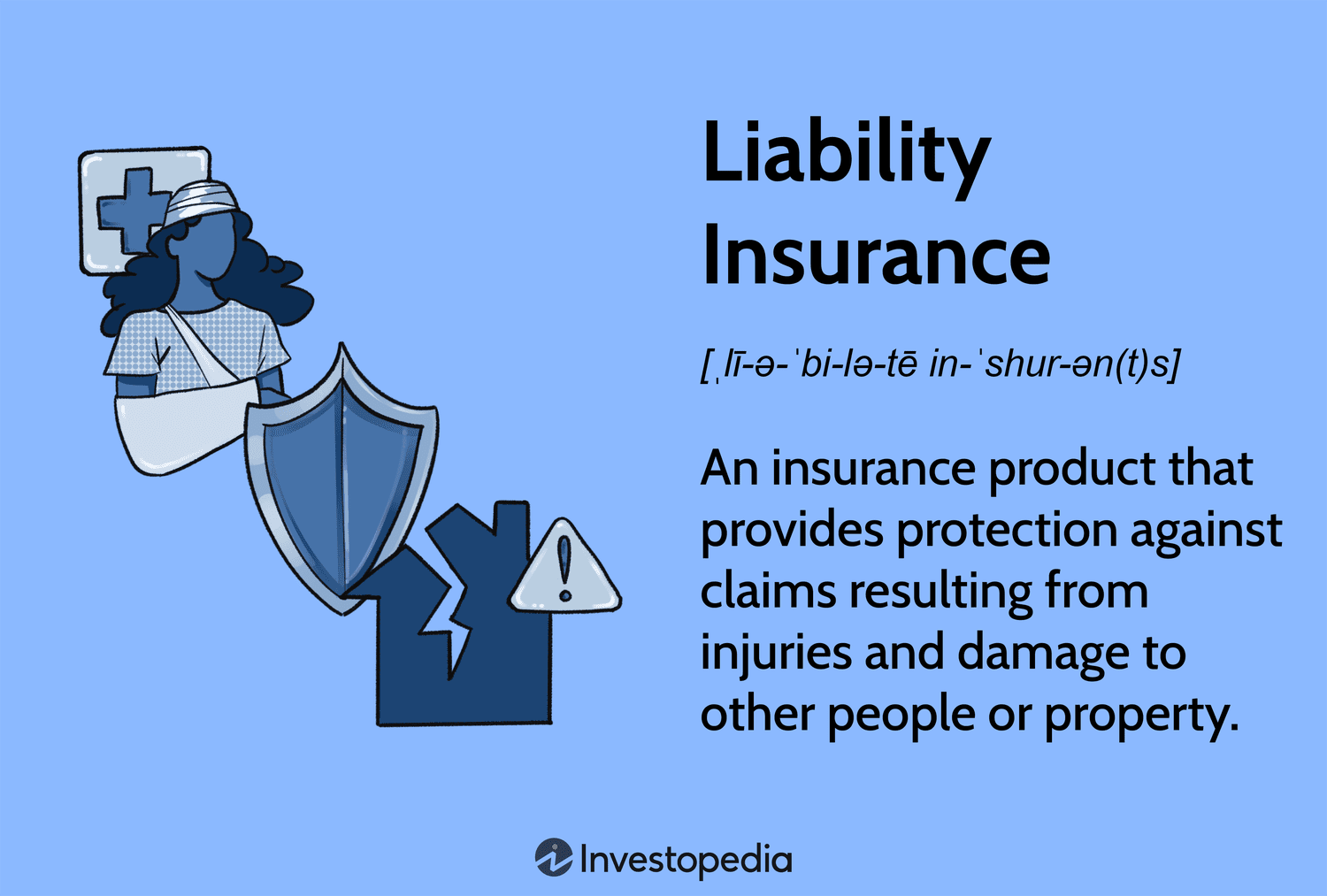Introduction
What is a good auto insurance company
In the realm of vehicle ownership, having the right auto insurance is not just a legal obligation but a safeguard against the uncertainties of the road. With the plethora of auto insurance companies vying for your attention, finding a good one might seem like a daunting task.
But fear not, as we embark on a journey to uncover the key attributes that define a reputable auto insurance company. From financial strength to customer service excellence, coverage options to claim processes, we’ll navigate through the landscape of auto insurance to guide you in making an informed choice. So, buckle up as we explore what truly makes a good auto insurance company stand out from the crowd.
What is a good auto insurance company
Finding the Perfect Coverage
If you own a vehicle, you’re probably familiar with the importance of What is a good auto insurance company. While it’s a legal requirement in most places, the right What is a good auto insurance company can also provide you with financial protection and peace of mind. But with the multitude of What is a good auto insurance company out there, how do you determine which one is the best fit for your needs? In this article, we’ll explore the key factors to consider when evaluating auto insurance providers and help you find What is a good auto insurance company that suits your requirements.
What is a good auto insurance company
Understanding Your Needs
Before you compare different auto insurance companies, it’s crucial your insurance needs. Consider factors such as the type of coverage you require, your budget, the value of your vehicle, and whether you have any specific preferences, like a desire for excellent customer service or a particular deductible amount.
Financial Strength and Reputation
A reputable auto insurance company should have a strong financial foundation. You want to choose a company that can handle claims efficiently, especially during unexpected events when you need them the most. Look for insurance companies that have high ratings from credit rating agencies and those that are well-reviewed by customers for their claims process and financial stability.
What is a good auto insurance company
Coverage Options
A good auto insurance company should offer a variety of coverage options to cater to different needs. Common coverage options include liability coverage, comprehensive coverage, collision coverage, uninsured/underinsured motorist coverage, and medical payments coverage. Having multiple options allows you to tailor your policy to your specific requirements.
What is a good auto insurance company
Customer Service
Excellent customer service is essential when dealing with auto insurance. You want a company that is responsive, attentive, and willing to help you throughout your insurance journey. Reading customer reviews and getting recommendations from friends or family members can give you insights into the quality of customer service provided by different companies.
What is a good auto insurance company
Premium Costs and Discounts
While cost shouldn’t be the only factor you consider, it’s important to find a balance between quality coverage and affordability. Get quotes from multiple auto insurance companies and compare their premiums. Inquire about discounts such as safe driver discounts, multi-policy discounts, and discounts for anti-theft devices. These discounts can significantly lower your premium costs.
Claim Process
The claim process can be a deciding factor when choosing an auto insurance company. Research how different companies handle claims–whether they have a streamlined online claims process, a 24/7 claims hotline, and how quickly they process and settle claims. A hassle-free claim process can reduce stress during already challenging times.
Online Tools and Mobile Apps
In today’s digital age, convenience matters. Many reputable auto insurance companies offer user-friendly websites and mobile apps that allow you to manage your policy, make payments, file claims, and access important documents on the go. These tools can enhance your overall experience with the insurance provider.
Discounts for Good Driving Behavior
Some insurance companies offer programs that monitor your driving behavior using telematics. By demonstrating safe driving habits, such as obeying speed limits and avoiding sudden stops, you can earn discounts on your premiums. This can be a great incentive for responsible drivers.
What is a good auto insurance company

What is a good auto insurance company
Financial Discounts and Rewards
Consider looking for an auto insurance company that offers financial incentives and rewards for good driving behavior. These incentives could include cashback for not filing claims over a certain period or reducing deductibles for each year of safe driving.
Transparent Policy Terms
A good auto insurance company should have transparent policy terms that are easy to understand. Avoid companies with overly complex language or hidden clauses. Understanding the terms of your policy is crucial to avoid surprises when you need to make a claim.
Flexibility in Payment Plans
Life is unpredictable, and your financial situation may change. Look for insurance companies that offer flexible payment plans, allowing you to adjust your payment schedule without unnecessary stress.
Network of Repair Shops
If you’re particular about where your vehicle gets repaired in case of an accident, inquire about the insurance company’s network of repair shops. Some insurance providers have a list of approved repair facilities, ensuring quality repairs and parts.
Roadside help
Having access to roadside help can be a lifesaver in emergencies. Some auto insurance companies offer roadside help as an optional add-on or as part of certain coverage packages.
Ease of Policy Renewal
The process of renewing your policy should be straightforward and convenient. Choose an insurance company that makes policy renewal easy and provides clear communication about any changes in coverage or premiums.
Compare and Reevaluate
Remember that your insurance needs may change over time, so it’s a good idea to compare different insurance options periodically. As your circumstances evolve, you might find that another insurance company offers a better fit for your current situation.
Understanding Your Needs
Before diving into the ocean of auto insurance companies, it’s imperative your specific needs. Are you seeking comprehensive coverage that extends to both you and others involved in an accident, or are you looking for a more basic liability coverage that adheres to legal mandates? Evaluating the value of your vehicle, your driving habits, and your budget will help you determine the level of coverage required.
Financial Strength and Reputation
One cornerstone of a good auto insurance company is its financial strength. An insurance provider’s ability to fulfill claims promptly and efficiently depends on its financial stability. To gauge this, look for companies that have high credit ratings from reputable credit rating agencies. Delve into customer reviews and industry reports to understand how well the company handles claims and its overall reputation within the market.
Coverage Options
A good auto insurance company should offer a spectrum of coverage options that align with the diverse needs of their customers. Beyond the basics of liability coverage, explore whether the company provides options like comprehensive coverage, collision coverage, uninsured or underinsured motorist coverage, and medical payments coverage. The availability of diverse options enables you to tailor your policy to your unique requirements.
Customer Service
The quality of customer service can significantly impact your experience with an auto insurance company. A good company values its customers and provides timely, helpful, and compassionate support throughout the policy lifecycle. Reading customer reviews and seeking recommendations from friends and family can provide insights into the level of customer service a company offers.
Table of Contents
Premium Costs and Discounts
While affordability shouldn’t be the sole determining factor, it’s undoubtedly important. Getting quotes from multiple auto insurance companies allows you to compare premium costs and identify the most competitive offers. Inquire about discounts–safe driver discounts, multi-policy discounts, and even discounts for safety features installed in your vehicle. These discounts can make a considerable difference in your premium payments.
Claim Process
The ease and efficiency of the claim process can define your satisfaction with an auto insurance company during critical times. Investigate how different companies handle claims–do they have an accessible online claims process or a 24/7 claims hotline? The speed at which they process and settle claims is vital information that can affect your decision.
Online Tools and Mobile Apps
In the digital age, accessibility and convenience matter. Reputable auto insurance companies provide user-friendly websites and mobile apps that enable policyholders to manage their policies, make payments, file claims, and access essential documents on the go. These tools enhance your interaction with the company and provide real-time help.
Discounts for Good Driving Behavior
Much insurance companies have embraced technology to encourage safe driving habits. Telematics programs monitor your driving behavior, rewarding safe practices with premium discounts. This incentive not only benefits your wallet but also promotes responsible driving.
Financial Discounts and Rewards
A good auto insurance company recognizes and rewards your commitment to responsible driving. Look for companies that offer financial incentives for remaining claims-free over a specific period. These incentives could include reduced deductibles or even cashback for your cautious driving habits.
Transparent Policy Terms
An excellent auto insurance company is transparent about its policy terms. Steer clear of companies that bury crucial information in complex language or obscure clauses. Understanding the terms of your policy is crucial to avoid surprises when you need help.
Flexibility in Payment Plans
Life is unpredictable, and financial situations can change. Look for insurance companies that provide flexible payment plans, allowing you to adjust your payment schedule when needed without unnecessary stress.
Network of Repair Shops
For those particular about where their vehicles are inquire about the insurance company’s network of repair shops. Some insurers maintain a list of approved repair facilities, ensuring that your vehicle receives quality care.
Roadside help
Roadside emergencies can happen. An auto insurance company that offers optional roadside help can be a lifesaver in such situations, providing services like towing, battery jump-starts, and more.
Ease of Policy Renewal
The process of renewing your policy should be straightforward and transparent. A good auto insurance company ensures that policy renewal is hassle-free, with clear communication about any changes to coverage or premiums.
Compare and Reevaluate
Remember that your auto insurance needs may evolve. Life changes, such as a new vehicle purchase or a change in driving habits, can alter your requirements. Periodically comparing and reevaluating your options ensures that you’re always aligned with the best auto insurance for your current circumstances.
The Early Days: Birth of an Idea
The concept of auto insurance can be back to the late 19th century, coinciding with automobiles. As the number of cars on the roads grew, concerns arose about potential accidents and the financial consequences they could entail. The Travelers Insurance Company issued the first recorded auto insurance policy in 1897 in the United States. This policy covered liability for any bodily injuries or property damage caused by an insured vehicle.
Rapid Growth and Regulatory Frameworks
The early 20th century witnessed a surge in the popularity of automobiles, leading to an increased demand for insurance coverage. Insurance companies recognized the need to offer comprehensive policies that addressed a wide range of potential risks. In response to this demand, the insurance industry introduced various types of coverage, including collision and comprehensive policies, to provide more comprehensive protection for drivers and their vehicles.
As the auto insurance industry continued to grow, governments recognized the necessity of regulating it to ensure fair practices and protect consumers. This led to the establishment of regulatory bodies and guidelines for insurers to follow. They introduced mandatory auto insurance laws in some states in the United States, making it a legal requirement for drivers to carry a minimum level of coverage.
Advancements in Risk Assessment and Pricing
The mid-20th century brought significant advancements in risk assessment and pricing methodologies within the insurance industry. Insurers used actuarial science and statistical data to calculate premiums more accurately. Factors such as driving records, age, gender, and the make and model of the vehicle influenced premium calculations.
Introducing computers and technology in the latter half of the 20th century revolutionized the way insurers managed policies and processed claims. This digital transformation streamlined processes, making it easier for insurers to provide efficient services to policyholders.
From Standard to Specialized Coverage
As the auto insurance industry continued to evolve, it started offering more specialized coverage options to cater to diverse needs. Insurance policies included coverage for rental cars, roadside help, and even coverage for customizations and modifications. This customization allowed policyholders to tailor their coverage to their specific requirements.
The Modern Landscape: Technological Integration and Beyond
The 21st century ushered in a new era of auto insurance characterized by technological integration and data-driven insights. Telematics, devices that monitor driving behavior, became more prevalent, enabling insurers to offer usage-based insurance policies. This approach considers actual driving habits, providing incentives for safe driving and potentially lowering premiums for responsible drivers.
Autonomous vehicles, a disruptive force in the automotive industry, to impact the world of auto insurance. As self-driving cars become more common, questions arise about liability and the role of insurance when accidents involve both human-driven and autonomous vehicles. The industry is grappling with these questions and exploring new coverage models.
What is a good auto insurance company

Defining Auto Insurance
Auto insurance, simply put, is a contract between a vehicle owner and an insurance company. In exchange for regular premium payments, the insurance company agrees to provide financial protection in the event of certain incidents involving the insured vehicle. These incidents can range from accidents and collisions to theft, vandalism, and natural disasters. Auto insurance serves as a safety net that helps policyholders manage the financial consequences of unexpected events on the road.
What is a good auto insurance company
Financial Protection:
Accidents can cause extensive damage to vehicles, property, and even bodily injuries. Auto insurance covers the costs associated with repairs, medical expenses, and property damage, reducing the financial burden on the policyholder.
Key Components of Auto Insurance
Auto insurance policies comprise various components that together form a comprehensive coverage package. These components include:
This component covers bodily injury and property damage caused to others in an accident where you are at fault.
What is a good auto insurance company
Collision Coverage:
Collision coverage pays for repairs to your vehicle if it’s damaged in an accident with another vehicle or object.
Comprehensive coverage protects your vehicle from non-collision incidents such as theft, vandalism, fire, and natural disasters.
Medical Payments Coverage:
Similar to PIP, medical payments coverage pays for medical expenses resulting from an accident, regardless of fault, but usually covers fewer situations.
Auto insurance offers various types of coverage to cater to different needs and situations:
This typically includes liability, collision, comprehensive, uninsured/underinsured motorist, and sometimes PIP coverage.
Usage-Based Insurance:
With the help of telematics devices, this type of coverage bases your premiums on your actual driving behavior, rewarding safe driving habits.
Several factors influence the cost of your auto insurance premiums:
Driving Record:
A history of accidents, traffic violations, and DUIs can lead to higher premiums.
Younger and male drivers usually face higher premiums due to statistically higher accident risks.
High-performance cars and luxury vehicles often come with higher premiums because of their repair costs.
Location:
Urban areas with more traffic and higher crime rates can lead to higher premiums.
Coverage Levels and Deductibles: Higher coverage limits and lower deductibles usually result in higher premiums.
Credit Score:
Insurers may use your credit score to assess your level of risk.
Selecting the Right Auto Insurance Policy
Choosing the right auto insurance policy requires careful consideration of your needs, budget, and risk tolerance:
What is a good auto insurance company
Assess Your Coverage Needs:
Evaluate your driving habits, the value of your vehicle, and your financial situation to determine the level of coverage.
Get quotes from multiple insurance companies to find the best deal that meets your coverage requirements.
Read Policy Terms:
Carefully read and understand the terms, conditions, and exclusions of the policy before deciding.
Customer Service and Reviews Research the insurer’s reputation for customer service, claims processing, and overall satisfaction.
Bundle Policies:
Consider bundling your auto insurance with other policies, such as homeowner’s insurance, to potentially save money. Whether you’re a cautious driver or a seasoned road warrior, accidents can happen to anyone. Having the right auto insurance policy can make a world of difference in how you navigate and recover from such events.
Protecting the Road Ahead
The history of auto insurance reflects a journey of adaptation and innovation. From its humble beginnings as a response to the rise of automobiles, it has transformed into a sophisticated industry that embraces technology, data analytics, and specialized coverage options. As the world of transportation continues to evolve, auto insurance will undoubtedly evolve alongside it, finding new ways to protect drivers, passengers, and vehicles on the ever-changing roadways.
Defining Auto Insurance
At its core, auto insurance is a contract between a vehicle owner and an insurance company. The vehicle owner pays a periodic premium—usually monthly or annually—in exchange for coverage that will help mitigate the financial impact of accidents or damage to the insured vehicle. In the unfortunate event of an accident, the insurance company provides compensation to the policyholder according to the terms outlined in the insurance policy.
Auto insurance policies are diverse and customizable, allowing policyholders to tailor their coverage to their specific needs and circumstances. While the specific terms and conditions can vary, the underlying purpose of auto insurance remains constant: to provide financial protection and support when unexpected events threaten the security of a vehicle owner’s investment.
Financial Security
Auto accidents can cause significant financial burdens, including vehicle repair costs, medical expenses, and legal liabilities. Auto insurance acts as a safety net, covering these expenses up to the policy’s coverage limits. Without insurance, individuals could face overwhelming financial obligations in the aftermath of an accident.
Legal Compliance
In many jurisdictions, having auto insurance is a legal requirement. Driving without insurance not only exposes individuals to financial risks but also legal consequences such as fines, license suspension, and even criminal charges. Auto insurance ensures that drivers meet their legal obligations and responsibly take part in road traffic.
What is a good auto insurance company
Peace of Mind
Knowing that you’re protected by auto insurance allows you to drive with confidence. Whether it’s a minor fender bender or a more significant accident, having insurance in place means that you’re not alone in dealing with the aftermath. This peace of mind extends to the passengers in the insured vehicle, who can also rely on the coverage in case of injuries.
Liability Coverage
Auto insurance doesn’t just protect the policyholder—it also extends coverage to others who might be by an accident. Liability coverage is a critical component of auto insurance, as it covers bodily injury and property damage caused to others in an accident for which the policyholder is responsible. This coverage not only offers financial protection to the policyholder but also ensures that those affected by the accident receive compensation.
Liability Coverage
Liability coverage includes two main types: bodily injury liability and property damage liability. Bodily injury liability covers medical expenses, rehabilitation, and even legal fees in the event of injuries to others caused by the insured vehicle. Property damage liability covers the repair or replacement of property damaged by the insured vehicle, such as other vehicles or structures.
Customizing Coverage
Auto insurance policies are not one-size-fits-all; I can customize them to fit the unique needs and preferences of each policyholder. This customization includes adjusting coverage limits, selecting deductibles, and even adding supplemental coverage options. By tailoring the policy to specific circumstances, policyholders ensure that they’re adequately protected without paying for coverage they don’t need.
What is a good auto insurance company
Conclusion
Auto insurance stands as an indispensable shield that safeguards both your vehicle and your financial well-being. The road is unpredictable, and accidents can happen when least expected. Having a comprehensive auto insurance policy in place ensures that you are prepared to face the uncertainties with confidence.
Through this journey into the realm of auto insurance, we’ve explored its various aspects, from understanding the different coverage to demystifying the factors that influence premiums. We’ve debunked myths and highlighted the importance of making informed decisions when selecting a policy.
Remember, auto insurance isn’t just a legal requirement; it’s a responsible choice that reflects your commitment to protecting yourself, your passengers, and other road users. The right policy can provide peace of mind, knowing that you’re covered in case of collisions, thefts, and unexpected incidents.
What is a good auto insurance company
(FAQs)
Q1: How do I find the best auto insurance company for me?
Finding the best auto insurance company requires assessing your specific needs, comparing quotes, researching reputations, and considering customer reviews.
Q2: What factors affect my auto insurance premium?
Several factors impact your auto insurance premium, including your driving history, the type of coverage you choose, the make and model of your vehicle, your location, and even your credit score.
Q3: Can I switch auto insurance companies in the middle of my policy term?
Yes, you can switch auto insurance companies mid-policy. However, keep in mind that there might be cancellation fees, and you should time the switch to avoid coverage gaps.
Q4: What should I do if I’m not satisfied with the claims process of my current auto insurance company?
If you’re dissatisfied with the claims process, consider discussing your concerns with the company’s customer service. If the issues persist, you might explore switching to a different insurer.
Q5: Are online quotes accurate for determining my actual auto insurance premium?
Online quotes provide an estimate of your premium based on the information you provide. The actual premium could vary once the insurance company reviews more detailed information.
Q6: auto insurance mandatory for all vehicles?
Yes, auto insurance is mandatory for all vehicles on the road. It’s a legal requirement to have at least a minimum level of coverage to ensure financial responsibility in case of accidents.
Q7: What factors contribute most to high insurance premiums?
Several factors can lead to higher insurance premiums, including a poor driving history with accidents or traffic violations, low credit scores, selecting lower deductibles, and opting for higher coverage limits.
Q8: Will autonomous vehicles eliminate the need for auto insurance?
While autonomous technology could reduce accidents caused by human error, accidents could still occur because of technical failures or external factors. Some form of insurance will probably remain necessary to cover unforeseen events.
Q9: Can I switch my insurance provider before my policy expires?
Yes, you can switch providers before your policy expires. However, it’s advisable to do so towards the end of your policy period to avoid potential cancellation fees.
Q10: What should I do after a car accident?
After ensuring everyone’s safety, exchange contact and insurance information with the other party. Then, report the incident to your insurance company, providing them with the details for filing a claim.
Q11: Can I include additional drivers on my policy?
Yes, most insurance policies allow you to add additional drivers to your policy. However, it’s important to inform your insurer about all drivers to ensure accurate coverage and prevent potential claim disputes.
 Insu Edu Tech Insurance, Education & Technology
Insu Edu Tech Insurance, Education & Technology




